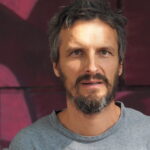Thanks to the DIGIT-AL project, CCI has focused on the topic of digital transformation, organically linking it with educational processes. In particular, the reflections carried out during the project have provided useful material for building bridges with the field of global citizenship education. One of the characteristics of global citizenship is its tendency towards the transformation of society through individual and collective responsibility for issues requiring a global approach to be resolved. Activation stems from an awareness and learning that comes not only from theory but also, and primarily, from experience. The project served to question how we could combine experience-based education with the pervasiveness of digital use in educational practice. Far from identifying digital as the solution to all educational problems, the project helped us to highlight the potential and limitations of ICT in educational practice. The result was an internal discussion within the organisation on identifying the most appropriate tools for achieving differentiated educational goals. The collection of methodologies gathered in the publication Learning the Digital is the basis for further training planned for the target group of teachers and educators in the near future
For me, participation is about becoming active in creating our own projects, exploring civil initiatives and engaging in democracy-related learning. It’s about moving beyond just using digital tools for learning to using them for citizen-led campaigning, self-organisation and enriching encounters at both national and international levels. It’s about preparing and empowering individuals to navigate and contribute to the digital transformation in our society.
In this interview, Nils-Eyk Zimmermann, the coordinator of the DIGIT-AL project, shares his insights on the initiative’s development and implementation.
Could you briefly talk about your background and how you first got connected with this project idea?
My expertise lies in civic education and specifically in promoting democratic citizenship and human rights education. I have previously worked with several international initiatives aimed at supporting active engagement in civil society. Through my involvement in the Democracy and Human Rights Education in Europe network (the DARE network), we recognised a need to address the digitalisation of society and its impact on democracy. This sparked the development of a project focused on enhancing digital learning tools within the pedagogy of human rights and citizenship education.
Could you define ‘political adult education’ and its role in the project?
Political adult education here refers to education that addresses structural societal issues. Rather than focusing solely on individual behaviour, it’s about understanding and participating in governance and societal rule-making. For our project, it was about learners not just using digital tools but also contributing as co-creators to the digital transformation in their communities and as informed participants in society.
How did you begin the project, and how were partnerships and goals formed?
We started by exploring existing pedagogical approaches and identifying key stakeholders in media pedagogy. We noticed a shift towards more critical engagement with technology, prompting us to think about digital transformation beyond individual technology use to societal change. Our project is designed to make digitalisation understandable and engaging and to avoid overwhelming learners with complexity. The partners, who are active in youth, teacher and non-formal educator training, were drawn from our network, which focuses on challenges such as disinformation and societal polarisation. Together, we envisioned a role for civic educators as facilitators of meaningful change in the digital landscape.
Can you describe the approach and methodology used to develop the project’s activities and materials?
Initially, we structured this project over three years. Our goal at the start was to explore the ongoing discourse and developments in digitalisation across various fields. We also aimed to learn from the perspectives of different stakeholders. We didn’t approach this with an academic attitude, as we are practitioners at the boundary of research and theory.
We began with a conference in Brussels, where it was crucial for all organisations to bring their experiences and expertise from their respective countries or fields. This included preparing inputs and having discussions with the European Commission, the European Economic and Social Committee and other educational stakeholders in the field of digital rights, particularly those involved in Horizon 2020 projects on data protection and human rights.
The conference served as a multi- stakeholder exchange and a mutual learning space. Then COVID hit, and we realised the need to pool our resources. Different organisations took responsibility for various parts of the project. For example, our partners from Portugal, who are heavily involved in community work, took over the community and participation aspects. Our Italian colleagues, with their expertise in media and journalism, delved deeper into those areas. The Estonian partners, coming from a highly digitised country, focused on state and digitalisation.
The first year was intensive and it involved descriptions of the developments in education policy and catching up on scientific debates. The goal was to link these findings to adult learning and education, providing ideas and directions for adult learning in these fields.
In the project’s second phase, we aimed to create a more practical handbook for facilitators by presenting methods and tools to make the content less theoretical and more practical. The idea was to provide snippets that would encourage educators to explore further in their respective fields.
Throughout the project, we continuously engaged with the policy level, participating in events such as the Lifelong Learning Week in Brussels to gather feedback and understand the needs of policymakers and practitioners. Our policy recommendations ultimately aimed to translate these insights to both the policy level and educational organisations, viewing them as active stakeholders in digital democracy and learning.
The project had three phases overall: initially bringing in theory and current developments, then drawing conclusions for adult education with the readers and finally creating something more practical and hands-on for educators, through balancing the expectation for easy-to-apply methods with a more holistic pedagogy of digital learning.
Are there any other significant activities or outputs you’d like to highlight?
Dissemination was a critical aspect – sharing materials and creating a feedback loop. Our goal was to establish civic and democracy-related education as foundational, not just an add-on to digital competence. We aimed to convey that digital competence should be transformative and not just about adopting new technologies. We worked to translate complex topics into understandable concepts for policymakers and educators, using analogies like the diesel motor scandal In Germany to illustrate the importance of critical understanding over technical expertise. Our project hopefully encouraged the idea that one doesn’t need to be an engineer or coder to learn about and facilitate discussions on digitalisation.
Can you share any unexpected findings from the initial exploration phase of your project?
We were pleasantly surprised by the enthusiasm from the European Commission and the Economic and Social Committee about the project. The high level of engagement from these entities demonstrated a real interest in educational perspectives on digital policy areas. Another unexpected aspect was the willingness of digital rights advocates, including think tanks and non-governmental organisations (NGOs), to collaborate with educators, despite their usual focus on policy-making. Our project coincided with significant EU legislative developments in digital policy, which enriched our discussions and stakeholder interactions.
The topic of the digital self sparked more interest than anticipated, indicating a need for resource-oriented pedagogy that addresses identity in the digital age. This has opened up the potential for collaborations beyond the education sector.
In terms of stakeholder involvement for dissemination, who were the key players and what feedback proved most useful?
The key dissemination stakeholders were policymakers, educational providers and networks at the European level, along with educators and trainers across our partner countries. Feedback from these diverse groups helped tailor our outputs, ensuring relevance across different educational and professional contexts. We aimed to integrate this feedback into our policy discussions and educational resources to enhance the project’s impact.
Regarding stakeholder feedback during the dissemination, were there any noteworthy responses?
We engaged in policy consultations like the Digital Education Action Plan, which allowed us to bring a democracy-centric perspective to the European Digital Competence Framework. This involvement is a subtle but significant influence on European policies and emphasises democratic principles. However, we face a gap in receiving feedback from facilitators on the ground regarding the use of our educational handbook. We lack relevant data collection systems to capture this information, making it challenging to gather data about the effectiveness and practical impact of our work.
In reflecting on the project, what are the results you find most fulfilling?
Our most substantial achievement is the conceptualisation of a digital pedagogy that merges with democracy and civic education. We’ve successfully communicated the complexity of digitalisation in education and encouraged a deeper, more critical examination among educators and stakeholders. This has shifted the conversation from a focus on technology implementation to a broader understanding of digital citizenship and its implications for democracy.
How do you envision the ideal application of your materials in adult education settings?
Ideally, our resources would be woven into the fabric of adult education across various subjects, promoting digital savvy among learners. We see the potential for our materials to support educators in integrating digital topics into diverse curriculums, such as environmental studies or social sciences, thereby broadening the scope of digital literacy to encompass critical thinking and civic responsibility.
Could you discuss the experience of adapting youth education strategies to adult education?
We have found that strategies developed for youth, especially in digital literacy and engagement, are adaptable to adult learners. Adults are active in social media and online platforms, and they can benefit from methodologies developed for younger audiences. However, we recognise the need for a nuanced approach that addresses the specific experiences and learning styles of adults. This includes leveraging their life experiences and understanding the symbiotic relationship between digital and real-world interactions. Emphasising a competency-based approach acknowledges the existing skills adults bring to the table and can lead to a more empowering educational experience.
Are there any other notable experiences or stories related to this topic that haven’t been mentioned?
Reflecting on personal growth, the project was a journey of discovery across different societal sectors and stakeholder groups. It became evident that public visibility doesn’t necessarily equate to influence in driving digital transformation. Unexpectedly, inspiration was drawn from Finnish youth work and the alternative internet and open-source movements in France, showcasing that digitalisation thrives on diversity and contributions from various actors, not just dominant forces. This realisation significantly broadened my perspective on digitalisation.
And finally, can you share any follow-up plans for the project’s theme and the materials that were developed?
We created this project because we believe it is of great importance for democracy- and human rights-related education, as well as for youth education. We see the project as a first step. In addition to continuing work on the topic of digital transformation in various activities, we hope to have the chance to follow up in further European projects. We’ve applied in both the youth and adult sectors with existing partners and new partners we met on our journey.
At the European level, we remain involved in discussions on digital competence and digitalisation in education and training, particularly through the DARE Network. Instead of blindly trusting the promises of technology, we need to learn and share critical but constructive views about it. This means not completely rejecting Chat GPT or artificial intelligence (AI) in general, nor naively promoting the hype. We carry out this exchange with youth educators and adult educators.
Last but not least, we are committed to developing digital transformation in a way that supports democracy and strong democratic participation and oversight. This includes informing about current digital policy and strengthening the free and open sphere of the internet ecosystem.
Project outcomes
Extending and updating the Digital Toolbox Competendo.
Publishing a handbook for facilitators and a brochure series, along with the associated dissemination activities.
Reader Series: Smart City – Smart Teaching – Digital Transformation in in Learning for Active Citizenship (eight brochures)
Handbook for Facilitators: Learning the Digital
Policy Recommendations: Learning the Digital Lifelong
Further developed digital toolbox and app: Competendo Digital Toolbox
About the project
Supported by:
Erasmus+
EU Youth Programme Priority:
Digital Transformation
Participation in Democratic Life
Topic:
Digital Participation
Youth Goals:
Visibility:
Exchange in national and European networks of educators and educational organisations, as well as cross-sectoral exchange.
Involvement in advocacy and consultations regarding digital competence and pedagogy.
Extending and updating the Digital Toolbox Competendo https://competendo.net.
Publishing a handbook for facilitators and a brochure series, along with the associated dissemination activities.
Organisations involved:
Lead partner: Association of German Educational Organizations (AdB)
Partners:
Jaan Tönisson Institute (Estonia)
Education Development Centre (Latvia)
Partners Bulgaria Foundation (Bulgaria)
Center for International Cooperation Trento (Italy)
Kooperative Inducar (Portugal)
DARE-Network Democracy and Human Rights Education in Europe (Belgium)
















